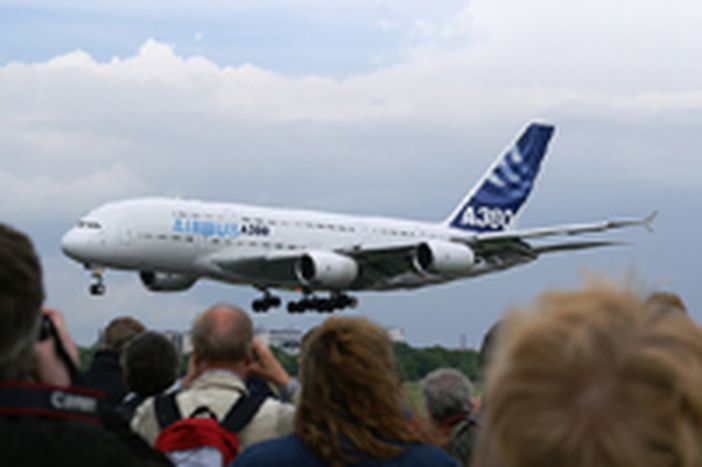
Airbus – 'spoilt child' of EADS
Published on
Translation by:
Emily GriffinsBetween white-collar job cuts, indemnities for executives reaching millions of Euros, and relocations to China, aircraft manufacturing subsidiary Airbus is attempting to overcome its current crisis
In order to maintain a competitive position against its American rival, Boeing (largest aircraft manufacturer by revenue), the European Aeronautic Defense and Space company (EADS), announced restructuring measures on 28 February. The aerospace consortium plans the partial or total sale of six of its sixteen factories in four countries. In short, this translates to the redundancy of 10, 000 employees and subcontractors in France, Germany, Great Britain and Spain.
Where Airbus comes in
Airbus was established in 2001 by EADS (80%) and BAE Systems (20%). What began as an 'economic interest group' (EIG) transformed into a company of its own with an independent administration. Headquarters sprouted in Toulouse, in southwestern France. The number of employees have doubled in the last five years.
Seen as both a flourishing business and symbol of European unity, Airbus has managed to surpass current no.1 Boeing in recent years, both in terms of orders (between 1999 and 2005, Airbus’ annual airplane orders increased from 476 to 1111, compared to Boeing’s increase from 355 to 1028), and of deliveries (rising from 305 to 378 between 2003 and 2005, compared with 281 to 290 for Boeing).
Crisis
By the end of 2005, in order to keep ahead of Boeing, Airbus was pushed into hastily closing multiple contracts, despite pre-existing worries of delayed delivery. In 2006, Airbus finally admitted delays with the delivery of the A380 passenger plane, the largest in the world. At the same time, they continued to show a lack of enthusiasm for the A350 project, a rival for Boeing’s new fuel-efficient 787 Dreamliner. This was followed by the consecutive resignations of two executive directors: the German Gustav Humbert and his successor, the Frenchman Christian Streiff. On top of this, American clients UPS and FedEx cancelled their orders. After the official A350 launch was postponed three times, vice president Harald Wilhelm reacted by saying that 'To do nothing is not an option.'
The new A350 (the launch of which has been postponed until 2013), has not yet come under criticism. But its production costs continue to increase, especially given the strength of the Euro against the dollar. According to the current executive director of Airbus, Frenchman Louis Gallois, 'we cannot continue to produce in Euros and sell in dollars, like Boeing' - especially with the Euro at 1, 35 dollars.
The intervention of various governments seeking to defend the interests of their country’s employees and businesses has not helped to overcome the crisis either. Frenchman Jacques Barrot, EU Transport Commissioner, has said that Airbus is 'paying the high price of bad governance, with the involvement of several governments.' In his eyes, it would have been better to leave the company to make its own readjustments.
However, despite all the difficulties, in 2006 Airbus maintained a higher number of deliveries than its American rival with 434 airplanes, 36 more than Boeing.
Power 8
Airbus is claiming that its new reconstruction programme, 'Power 8', will solve the company’s financial problems and put it back on the competitive market. The latter has widened since China’s official March 2006 announcement of their plan to start production of their own commercial airplane by 2020. Airbus urgently need to save approximately 5.5 billion Euros between now and 2010, to facilitate the development of the new A350.
The biggest shareholders - Germany and France - have declared their support for the reconstruction plan, which involved 10, 000 job losses. In the words of German Chancellor Angela Merkel, 'we want the company to be competitive once again,' even when that implies 'difficulties for the workers.' In the same announcement, German economy minister Michael Glos, expressed his enthusiasm for a decision which would 'balance' the burden of the necessary cuts made by various international investors, and insure the production and development of the project in his country.
The final word goes to Italian president Romano Prodi, who on 3 March declared that Airbus 'was born out of an entrepreneurial policy which would later be transformed into a more industrial project.' In his eyes, we are currently experiencing the 'step of a political strategy towards an industrial one.'
Translated from EADS/AIRBUS: atravesando su Cabo de Hornos



